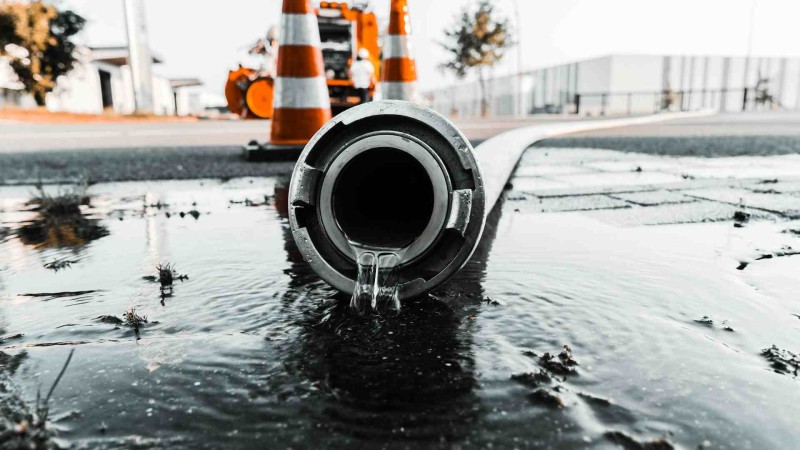Leak detection is a critical aspect of maintaining the safety, integrity, and efficiency of properties. Whether it's a residential home, a commercial building, or an industrial facility, leaks can have serious consequences if left undetected. This article will delve into the reasons why leak detection is important, the potential impacts of undetected leaks, and how to go about detecting leaks effectively.
Importance of Leak Detection
Preventing damage to property
One of the primary reasons why leak detection is important is to prevent damage to property. Leaks, whether from plumbing systems, roofs, or other sources, can cause water damage that can be costly to repair. In the case of hidden leaks, such as those within walls or under floors, the damage can go unnoticed for an extended period, leading to structural issues that may compromise the safety of the building.
Ensuring safety and preventing accidents
Leak detection is crucial for ensuring the safety of occupants within a property. Gas leaks, for example, can pose a significant risk to health and safety if not detected promptly. Similarly, water leaks can create slippery surfaces that increase the likelihood of accidents and injuries. By proactively detecting leaks, property owners can mitigate these risks and create a safer environment for all.
Protecting the environment
Leaks can also have a detrimental impact on the environment. Chemical leaks, oil spills, or sewage leaks can contaminate soil, water sources, and air quality, leading to long-term environmental damage. By detecting leaks early on, property owners can prevent these substances from escaping into the environment and causing harm to ecosystems and wildlife.
Saving money
Detecting leaks early can also help property owners save money in the long run. By addressing leaks promptly, they can prevent costly repairs, reduce water or energy wastage, and avoid potential fines or penalties for non-compliance with regulations. In the case of commercial properties, efficient leak detection can also contribute to lower operational costs and increased profitability.
Fulfilling legal and regulatory obligations
Property owners are often required to comply with legal and regulatory obligations related to leak detection and prevention. Failure to adhere to these requirements can result in fines, legal liabilities, or reputational damage. By implementing robust leak detection measures, property owners can ensure they are meeting their obligations and operating in a responsible and compliant manner.
Impact of undetected leaks
Physical damage to homes and buildings
Undetected leaks can cause extensive physical damage to homes and buildings. Water leaks, for example, can lead to rot, mold growth, and deterioration of building materials over time. This can compromise the structural integrity of the property and necessitate costly repairs or even reconstruction in severe cases.
Health risks due to hazardous material leaks
Leaks of hazardous materials, such as gas, chemicals, or sewage, can pose serious health risks to occupants of the property. Gas leaks, in particular, can be toxic and flammable, putting individuals at risk of poisoning or explosion. Similarly, chemical leaks can cause respiratory issues, skin irritation, or long-term health problems if not addressed promptly.
Environmental damage
Undetected leaks can have a significant impact on the environment. Oil leaks, for example, can contaminate water sources and soil, harming aquatic life and plant species. Chemical leaks can pollute the air and contribute to air quality issues. By detecting leaks early on, property owners can prevent these environmental consequences and protect the natural world.
Financial implications
The financial implications of undetected leaks can be substantial. In addition to the cost of repairing the damage caused by leaks, property owners may also face increased utility bills due to water or energy wastage. Moreover, fines or penalties for non-compliance with regulations can further add to the financial burden. By investing in leak detection and prevention, property owners can avoid these costly consequences.
How to detect leaks
Signs that there may be a leak
There are several tell-tale signs that may indicate the presence of a leak in a property. These include unexplained increases in water bills, damp or discolored patches on walls or ceilings, musty odors, running water sounds, or fluctuating water pressure. By being vigilant and observant of these signs, property owners can identify potential leaks early on and take action to address them.
Steps to take if you suspect a leak
If a property owner suspects that there may be a leak on their premises, they should take immediate steps to investigate and address the issue. This may involve shutting off the water supply, inspecting plumbing fixtures for visible signs of leaks, checking water meters for unusual activity, or contacting a professional leak detection service for assistance. Early intervention can prevent further damage and minimize the impact of the leak.
Professional leak detection services
In cases where leaks are hidden or difficult to detect, property owners may benefit from the expertise of professional leak detection services. These specialists use advanced technology, such as thermal imaging, acoustic detectors, or moisture meters, to pinpoint the source of leaks accurately. By engaging these professionals, property owners can ensure thorough and comprehensive leak detection, leading to timely repairs and peace of mind.
Conclusion
In conclusion, leak detection is a vital aspect of property maintenance and management. By prioritizing leak detection, property owners can prevent damage to property, ensure safety and prevent accidents, protect the environment, save money, and fulfill legal and regulatory obligations. The impacts of undetected leaks can be severe, ranging from physical damage to health risks, environmental harm, and financial implications. By being aware of the signs of a leak, taking prompt action if a leak is suspected, and utilizing professional leak detection services when needed, property owners can safeguard their properties and mitigate the risks associated with leaks.
By investing in leak detection, property owners can protect their assets, their occupants, and the environment for the long term.
